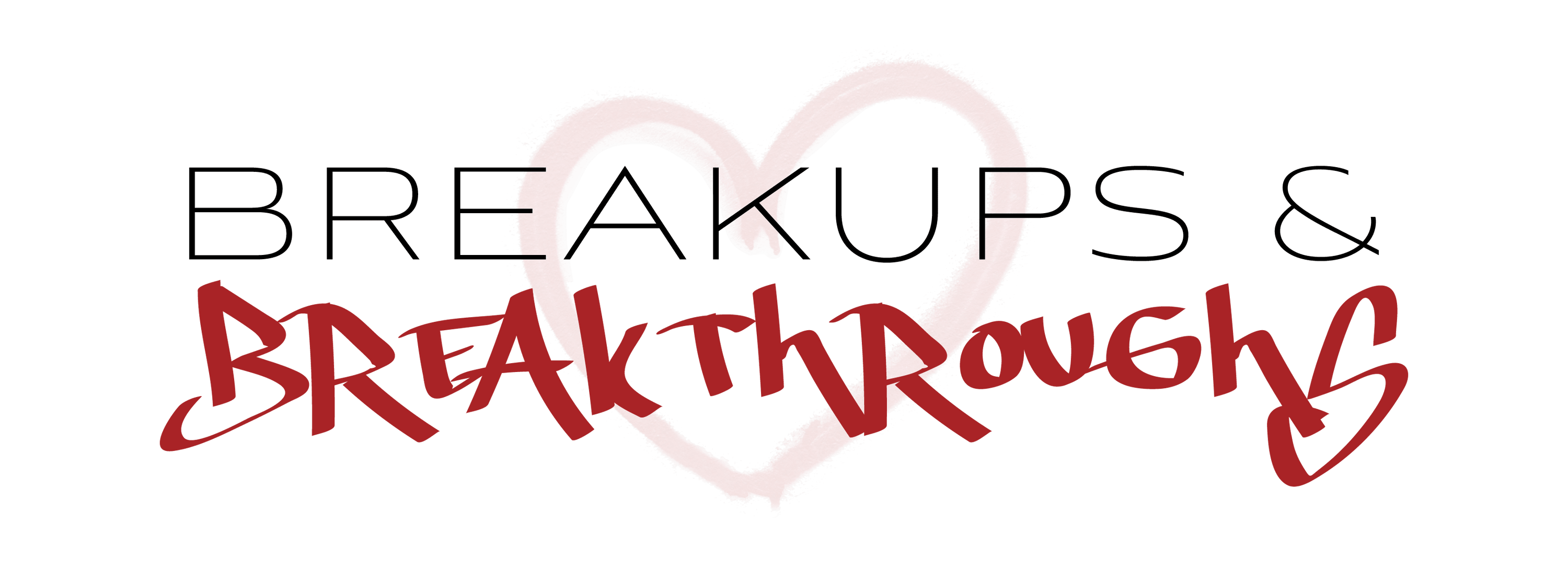Breakups: A Deep Dive Into The Pain, Growth, And Lessons You Need To Know
Listen up, folks. Breakups are no joke. They're like that gut punch you never saw coming, leaving you feeling like someone just turned your world upside down. Whether it's a toxic relationship or a perfectly good one that just fizzled out, the aftermath can feel like a rollercoaster ride through emotions you didn't even know existed. But hey, let's not sugarcoat it—breakups hurt. And they hurt bad. But here's the thing: they also teach you so much about yourself, love, and life.
We’ve all been there at some point, scrolling through social media, wondering why our ex seems to be thriving while we're stuck in bed, eating ice cream straight from the tub. It's normal to feel lost, confused, and maybe even a little bitter. But breakups aren’t just about the pain—they're about growth, healing, and learning how to love yourself again. So, buckle up because we’re diving deep into everything you need to know about breakups.
From understanding why breakups hurt so much to figuring out how to move on and rebuild your life, this article’s got your back. Whether you're fresh off a breakup or just trying to avoid one in the future, we’ve got tips, insights, and even some science-backed advice to help you navigate this tricky terrain. Let’s get started.
Table of Contents
- Why Breakups Hurt So Much
- The Stages of a Breakup
- The Biological Effects of Breakups
- Emotional Impact of Breakups
- The Healing Process After a Breakup
- Self-Care Tips for Healing
- Lessons Learned from Breakups
- When Is It Time to Move On?
- Rebuilding Relationships After a Breakup
- Final Thoughts on Breakups
Why Breakups Hurt So Much
Alright, let's start with the big question: why do breakups hurt so damn much? It's not just about losing someone you cared about—it's about losing a part of yourself. When you're in a relationship, you build a life together, create memories, and form habits. And when that's suddenly gone, it feels like a piece of you is missing. It’s like losing a limb, but instead of physical pain, it’s emotional.
Science actually has a lot to say about this. Studies show that the brain processes breakups similarly to how it processes physical pain. Yeah, you read that right—your brain literally thinks you're in physical pain when you're going through a breakup. So, the next time someone tells you to "just get over it," you can confidently reply, "Yeah, my brain's actually processing this like a broken bone, so give me a sec."
But it’s not just the brain—it’s also the heart. Or, well, the emotions tied to the heart. Love, trust, and connection are powerful forces, and when they’re suddenly ripped away, it leaves a void that takes time to fill. And let’s be honest, filling that void with Netflix and ice cream only works for so long.
Common Reasons Breakups Feel So Painful
- Loss of Identity: Being in a relationship often becomes a big part of who you are. Losing that identity can be disorienting.
- Uncertainty: Breakups bring a lot of unknowns—where you stand, what the future holds, and how to move forward.
- Emotional Investment: The more time and energy you put into a relationship, the harder it is to let go.
The Stages of a Breakup
Just like grief, breakups have stages. You might not go through them in a neat, orderly fashion, but they’re there, lurking in the background. Understanding these stages can help you navigate the chaos and make sense of what you're feeling.
Stage 1: Shock and Denial
At first, it’s all about shock. You’re thinking, "This can’t be happening. We were fine yesterday!" Denial is your brain’s way of protecting you from the harsh reality of what’s happening. It’s like a safety net for your emotions, but it won’t last forever.
Stage 2: Anger and Bargaining
Once the shock wears off, anger sets in. You might find yourself asking, "How could they do this to me?" or "What if we just try again?" This is the bargaining phase, where you try to negotiate a way back into the relationship. Spoiler alert: it rarely works.
Stage 3: Depression and Acceptance
This is the tough one. Depression can hit hard, leaving you feeling hopeless and alone. But eventually, acceptance kicks in. You realize that the relationship is over, and it’s time to move on. It’s not easy, but it’s a necessary step in the healing process.
The Biological Effects of Breakups
Breakups aren’t just emotional—they’re biological too. Your body goes through a lot when you’re heartbroken. Cortisol levels spike, adrenaline kicks in, and your heart might even feel like it’s racing. It’s like your body’s preparing for a fight-or-flight situation, even though there’s no actual threat.
And let’s not forget about the dopamine crash. When you’re in love, your brain releases dopamine, the feel-good hormone. But when the relationship ends, that dopamine supply gets cut off, leaving you feeling flat and unmotivated. It’s like going from a sugar high to a sugar crash in the span of a few days.
But here’s the good news: your body is resilient. With time, those hormone levels will stabilize, and you’ll start feeling like yourself again. It might take weeks, months, or even years, but healing is possible.
Emotional Impact of Breakups
Emotionally, breakups can feel like a tidal wave of feelings hitting you all at once. You might experience sadness, anger, confusion, and even relief, all in the span of a few hours. It’s overwhelming, to say the least.
One of the biggest emotional impacts is the loss of trust. Whether the breakup was mutual or one-sided, trust can be hard to rebuild. You might find yourself questioning future relationships or feeling hesitant to open up again. And that’s okay—it’s a natural response to pain.
Another common emotional effect is loneliness. Even if you had a toxic relationship, the sudden absence of someone in your life can leave you feeling isolated. It’s important to lean on friends and family during this time to help fill that void.
How to Manage Emotional Turmoil
- Talk It Out: Find a trusted friend or therapist to help you process your emotions.
- Journal: Writing down your thoughts can be cathartic and help you make sense of what you're feeling.
- Practice Gratitude: Focus on the positive aspects of your life to help shift your mindset.
The Healing Process After a Breakup
Healing after a breakup is a journey, not a destination. It’s about taking small steps every day to rebuild your life and rediscover who you are outside of the relationship. It’s not going to happen overnight, but with time and effort, you’ll get there.
One of the first steps in the healing process is setting boundaries. If your ex is still in your life, whether as a friend or a coworker, it’s important to establish clear boundaries to protect your emotional well-being. This might mean unfollowing them on social media or limiting your interactions with them.
Another key part of healing is self-reflection. Take some time to think about what went wrong in the relationship and what you can learn from it. This doesn’t mean assigning blame—it’s about understanding your role in the relationship and how you can grow from it.
Self-Care Tips for Healing
Self-care is crucial during the healing process. Here are a few tips to help you take care of yourself after a breakup:
- Exercise: Physical activity releases endorphins, which can help improve your mood.
- Meditate: Mindfulness practices can help you stay grounded and reduce stress.
- Connect with Others: Spend time with friends and family who support you and make you feel good.
- Pursue Hobbies: Rediscover old hobbies or try something new to keep your mind engaged.
Lessons Learned from Breakups
Believe it or not, breakups can teach you some valuable lessons. They can help you understand what you want in a relationship, what you don’t want, and how to prioritize your own needs. Here are a few lessons you might take away from a breakup:
- Self-Worth: You realize that your worth isn’t tied to someone else’s love.
- Communication: You learn the importance of open and honest communication in relationships.
- Boundaries: You understand the value of setting and respecting boundaries.
When Is It Time to Move On?
Knowing when to move on can be tricky. Some people jump into new relationships too quickly, while others cling to the past for too long. The key is to listen to your heart and trust your instincts. If you’re ready to move on, you’ll feel it.
Signs that you’re ready to move on include feeling more positive about the future, being able to think about your ex without anger or sadness, and having the energy to pursue new opportunities. It’s not about forgetting what happened—it’s about being ready to embrace what’s next.
Rebuilding Relationships After a Breakup
Rebuilding relationships after a breakup is possible, but it takes effort. Whether you’re trying to rebuild a friendship with your ex or start a new relationship, communication is key. Be honest about your feelings, set clear expectations, and be patient with yourself and others.
And remember, not every relationship is meant to last forever. Some relationships are just meant to teach you something, and that’s okay. The important thing is to learn from them and grow as a person.
Final Thoughts on Breakups
Breakups are tough, but they’re also opportunities for growth and self-discovery. They teach you about love, loss, and resilience. And while they might not feel like it at the time, they’re a necessary part of life.
So, if you’re going through a breakup right now, remember this: you’re not alone. Millions of people have been where you are, and they’ve come out the other side stronger and wiser. Take it one day at a time, lean on your support system, and trust that better days are ahead.
And hey, if you’re feeling like sharing, drop a comment below. Tell us your breakup story, your biggest takeaway, or just how you’re feeling. We’d love to hear from you!
Building Strong Relationships: A Guide To Lasting Connections
P Diddy Height: The Truth Behind The Iconic Artist's Stature
Chris Rock's Dad: The Untold Story Of Influence, Legacy, And Success

Breakups Are Hard Love Quotes

Breakups & Breakthroughs
Coping With Breakups